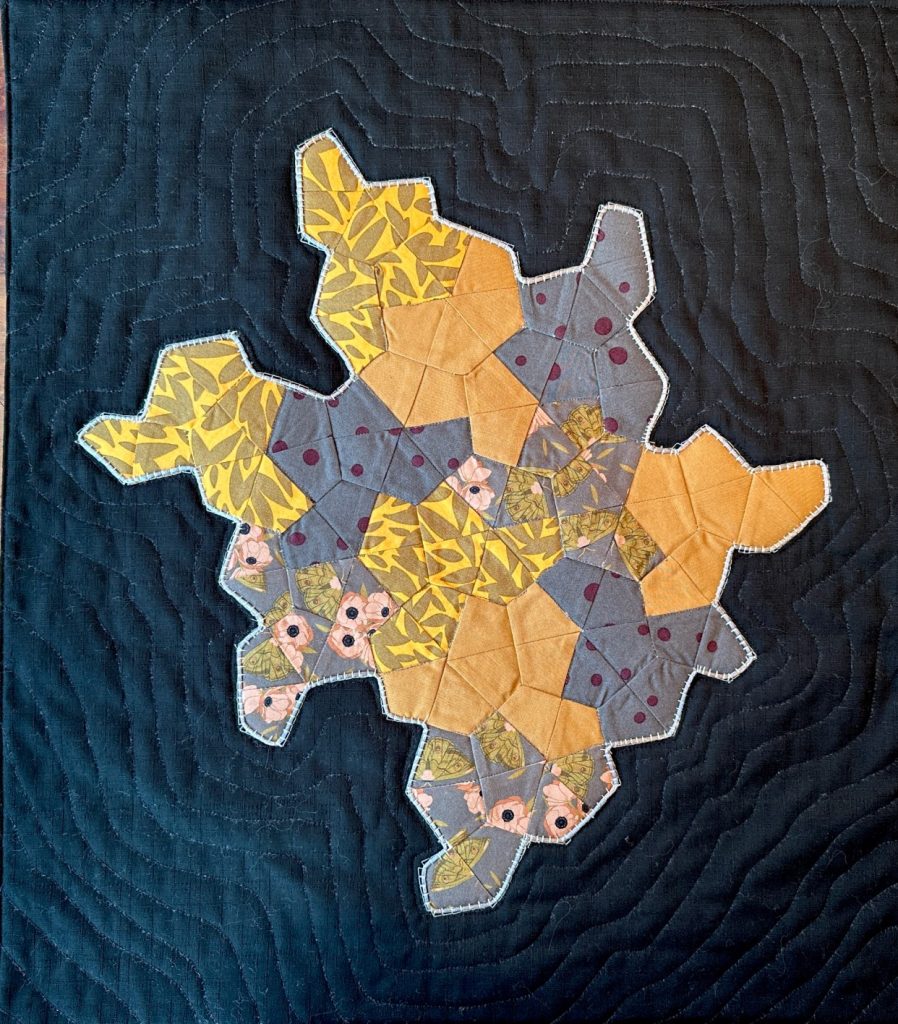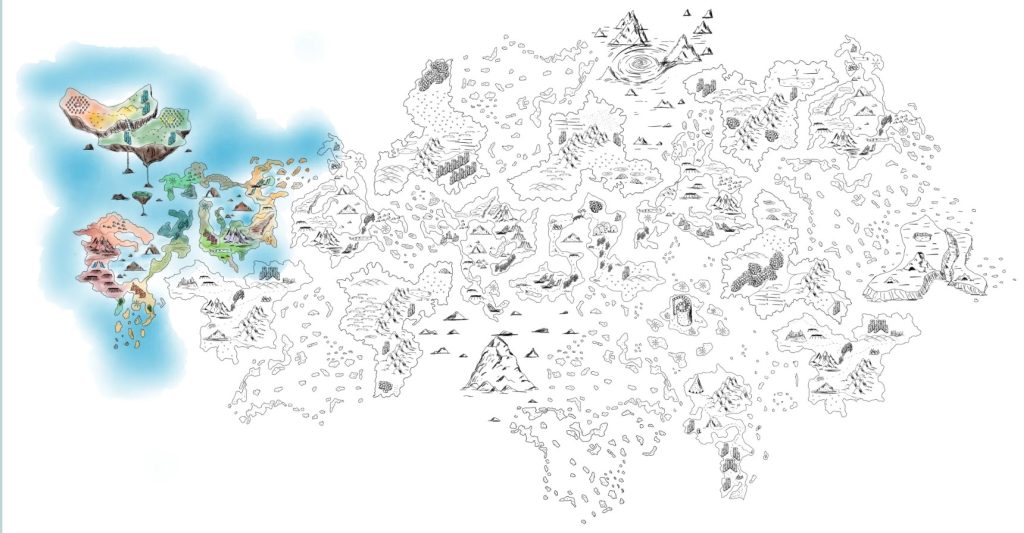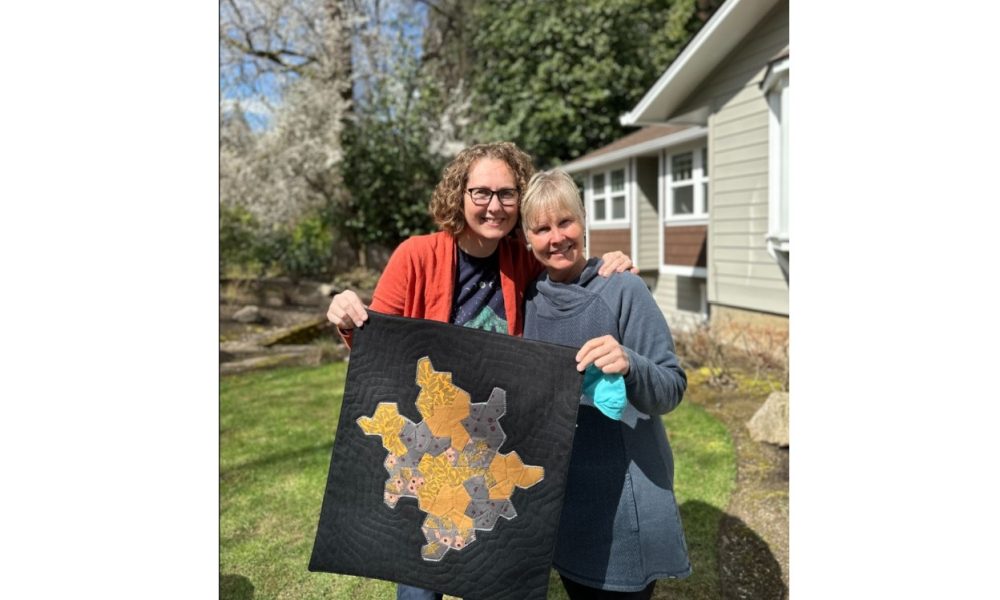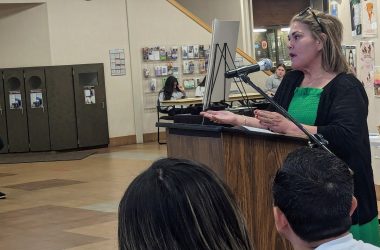Salem mathematician Sophia Wood is not a fan of multiplication tables.
“There’s so many people that hate math,” she said. “And maybe they wouldn’t if they had the art aspect, the visually appealing beauty of math and how to think. Not this computation stuff that we obsess over… I’m not a big fan of rote memorization.”
Wood, who has over 20 years of experience in engineering and math education, now produces content at the online teaching site Brilliant and tutors at area schools.
She learned to love math through hobbies and creative projects, and encourages her students to do the same.
So, when Wood learned about the recent discovery of a shape that eluded mathematicians for decades, she was ecstatic.
It started last November, when a jigsaw hobbyist named David Smith created a tile – a shape that can be copied and laid out like tiles on a kitchen floor – that looked somewhat like a hat. When he plugged the tile into a computer program, it was able to fill the screen with no overlaps, gaps or repeating tiles, according to reporting from Quanta Magazine.
Smith had inadvertently solved a puzzle that stumped researchers for over 50 years. He’d created an “aperiodic monotile,” also called the “einstein,” that can cover a two-dimensional plane without creating a repeating pattern – in the same way the irrational number pi will never end or create a pattern.
“It’s going to rotate and always fit together, but yet, it never repeats on how it’s rotating (periodically),” Wood said, making it aperiodic. “So when we think about the (ocean) tide going up and down, that’s periodic. Or the hand on your clock going around.”
With the new shape, Wood saw an opportunity to have fun.
“It’s not very often we get to celebrate such visual and fun sorts of discoveries in mathematics,” she said. “A lot of discoveries are so difficult sometimes, or niche, that it’s not something that the public can play with.”
For Wood, her love of math clicked during college when she switched from engineering to a math degree, where she could supplement her learning with literature and liberal arts classes. After realizing math and creativity go hand-in-hand, she was hooked.
The monotile discovery was published in P5.js, an accessible coding language that Wood uses to teach.
“I sat down and I just thought, ‘what is something that would be difficult to do that would be different, and would also grow me as an individual?’” she said.
After a few days of planning, she called her mom.
“I’m like, ‘Mom, how do you feel about quilting this entire weekend?’” she said.
Following some trial and error, they decided to paper piece it, a technique new to Wood that involves sewing fabrics onto paper geometric shapes. The project took them over 15 hours.
Wood was happy to spend time with her mom, and to learn a new skill. She posted a photo of the quilt and the creative process on her website, which CNN included in an article about the discovery.

Wood’s ideas didn’t stop there.
In her teaching, Wood incorporates fantasy worldbuilding for students’ stories and role-playing games. From currency to counting, roadbuilding and technology, she teaches students how to use math and science to create new worlds.
She created an activity allowing students to fit the monotiles together to build islands, which can then be fit together for a larger map.
Wood put instructions for the project online, and hopes that community classrooms, clubs and Dungeons & Dragons groups of all ages will take the idea and expand on it. She’s planning to organize a community project using them.

Wood believes that, like the tile itself, the innovations it will create will build upon each other endlessly.
“I think it will be so cool to see what all of the minds of this world will do with it,” she said.
Wood said her website is open to anyone in the community, and she invited people to share their creations to her email at [email protected].
Clarification: Wood has over 20 years of experience in math education, and uses math to teach a role-playing game similar to Dungeons & Dragons.
Contact reporter Abbey McDonald: [email protected] or 503-704-0355.
SUBSCRIBE TO GET SALEM NEWS – We report on your community with care and depth, fairness and accuracy. Get local news that matters to you. Subscribe today to get our daily newsletters and more. Click I want to subscribe!
Abbey McDonald joined the Salem Reporter in 2022. She previously worked as the business reporter at The Astorian, where she covered labor issues, health care and social services. A University of Oregon grad, she has also reported for the Malheur Enterprise, The News-Review and Willamette Week.









